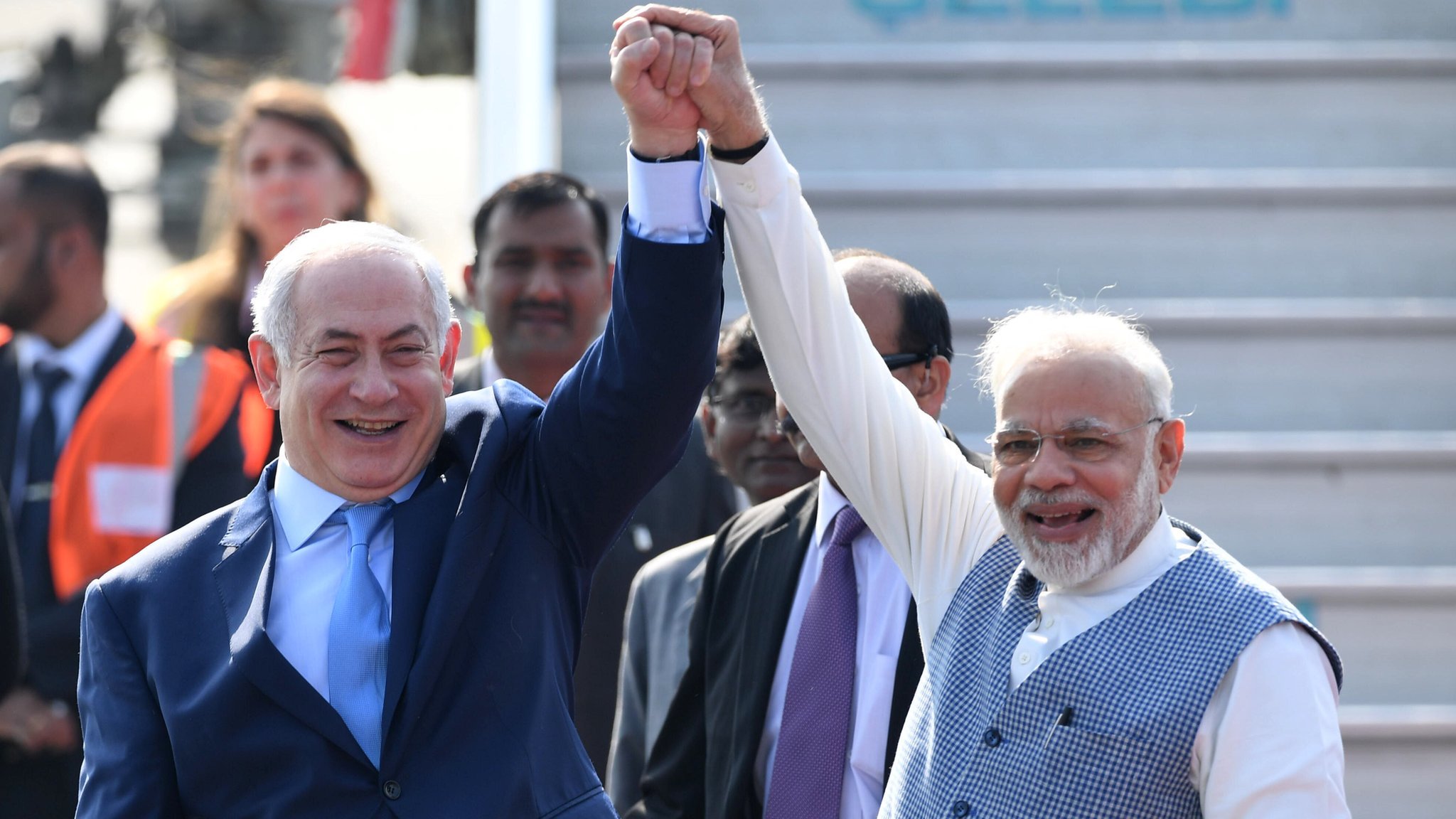India’s desperate attempts to ape Israel’s playbook
In both the countries, use of the term “Jihadi terrorists” is often a default assumption for Muslims, unless proven otherwise
OPINION, May 20, 2025
By ZMQ
ISRAEL’s ability to use overwhelming force, with impunity, to suppress the Palestinian people has long been a source of great admiration for ultra-far-right Indian nationalists, who fantasise about being able to do the same in Kashmir. The terrorist attack in Pahalgam on 22nd April presented New Delhi with a desperately awaited opportunity to showcase its military might.
Since the 1970s, India has a history of seeking clandestine tutorials and intelligence from Israeli agencies on the science of occupation and ethnic cleansing in Kashmir. The Indian state has been constantly fine-tuning its media narrative on Kashmir, borrowing heavily from the tried and tested Zionist playbook that describes Muslims as the ‘jihadi’ savages who are consumed by a visceral hatred of idol-worshipping, yoga-loving, singing and dancing Hindu majority.
Both India and Israel pride themselves on being the so-called “model democracies”. Israel claims to be the lone beacon of democracy in the Middle East — a patently false assertion given their apartheid social structure that treats non-Jews as either second-class citizens at best or as stateless refugees at worst. India, which is often described as the world’s largest democracy, is increasingly becoming authoritarian and majoritarian in character by gradually depriving non-Hindu minorities of their basic rights.
The parallel between Israeli society’s contempt towards the basic rights of the indigenous Palestinians and Indian society’s characterisation of Muslim minority as the Fifth Column is frightening. The far-right governments in both the countries have dehumanised Arabs and Muslims to such an extent that lynching and other covert and overt forms of oppression are a fact of life for ordinary Arabs/Muslims. The use of the term “Jihadi terrorists” is often a default assumption for Muslims, unless proven otherwise.
After the Pahalgam incident, India went further by attempting to copy-paste the Israeli modus operandi of “bomb thy neighbour” as a way of blaming foreign actors for operations of resistance and terrorism committed by the oppressed minorities. India was expecting a subdued response from its bombing campaign of Pakistan but the extremely robust response has been a source of huge national embarrassment and shock to Indian people.
India calls itself as the fourth-largest economic power (as measured by GDP) that has even surpassed Japan and is home to one of the biggest military forces in the world. Indians take enormous satisfaction in repeating that their country’s GDP is 10-11 times that of Pakistan.
Yet, economic growth has not translated into equitable prosperity. Despite claims of an ‘economic miracle’ under Prime Minister Narendra Modi, the benefits have accrued mainly to the country’s elite industrialists — such as the Adanis and the Ambanis — while vast segments of the population, particularly the poor and middle class, continue to struggle.
India remains a formidable adversary for Pakistan and for the Indians demonising both Pakistan and Indian Muslims has become an indispensable tactic in electoral politics. Pakistan’s challenges on the international stage are compounded by its image as a military-controlled pseudo-democracy.
Nevertheless, it is imperative that Pakistan maintains its composure and adopts a highly sophisticated public relations strategy that has a broad-spectrum appeal. This narrative must steer clear of religious rhetoric and focus instead on universal principles of human rights, self-determination, and justice.

